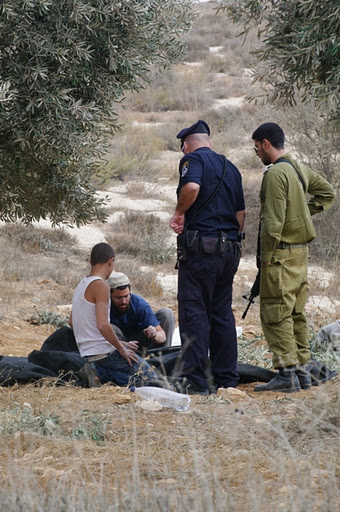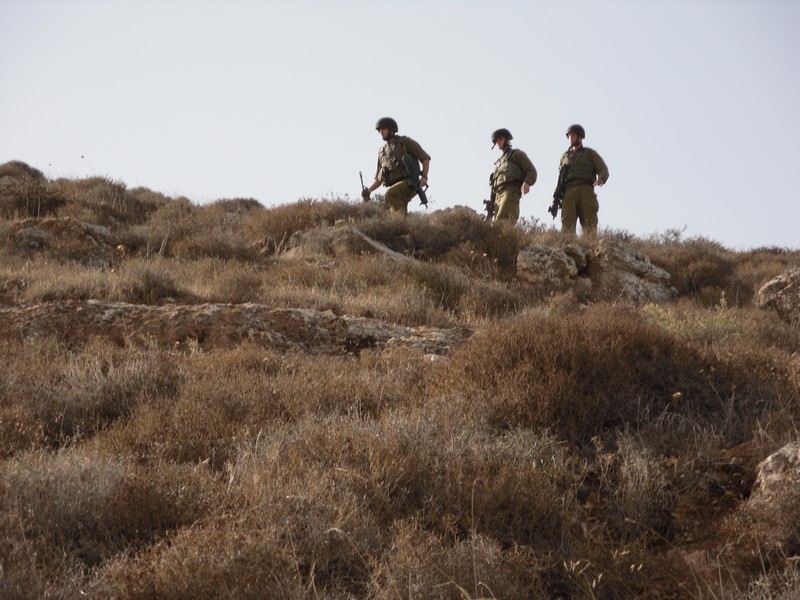Tag: Oliver Harvest 2011
-
Settlers desperately try to fit the role by stealing olives
by Aida Gerard 25 October 2011 | International Solidarity Movement, West Bank On Tuesday, illegal settlers from the Susiya settlement harvested the olive trees belonging to the Abu Sabha family from Susiya and Yatta, South Hebron Hills. Around 12 o’ clock a villager from the area spotted two settlers picking olives from the land of…
-
Israeli military and Zionists ambush olive harvest in Beit Furik
21 October 2011 | International Solidarity Movement, West Bank The Palestinian family El Jobor was unsuccessful in their attempt to harvest olives today as they met resistance from Jewish settlers and Israeli soldiers originating out of the Itamar settlement. Accompanied by ISM volunteers the family climbed the hillside above Beit Furik and marched through the olive…
-
There is no east: Olive harvest in Gaza
15 October 2011 | International Solidarity Movement, Gaza Gaza doesn’t have very much farmland left. The expanding no go zone imposed by Israeli bullets and bulldozers constantly erode the amount of land left for Palestinians to farm in Gaza. Mohamed Ashure Shimbari lives on the edge of the no-go zone. If you look east from…



